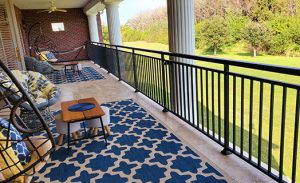To Call
Seeking out a residential school for your troubled girl? Our Central Florida residential treatment center for girls has much to offer.
If your daughter is struggling, you will want to find the best
treatment to help her. Providence Pass near Orlando helps
girls from across Florida.
- Beautiful Home & 20-Acre Ranch
- Individual, Family & Group Therapy
- Fun Recreational Activities
- Academics & Skill Building
- Equine Assisted Therapy

How to Deal With Avoidant Personality Disorder?
Avoidant Personality Disorder (AvPD) is a condition where individuals experience extreme social inhibition, feelings of inadequacy, and sensitivity to criticism. For teen girls, this disorder can be particularly challenging, affecting their emotional and social development. Understanding how to deal with avoidant personality disorder, its signs, and how to support affected teens is crucial for helping them navigate this condition.
Understanding Avoidant Personality Disorder
Avoidant Personality Disorder involves chronic feelings of inadequacy and an overwhelming fear of rejection. Individuals with AvPD often avoid social situations due to their intense fear of being judged or criticized. This can lead to isolation and difficulty in forming meaningful relationships.
Signs and Symptoms in Teen Girls
Some Common signs of AvPD include:
- Social Withdrawal: Teen girls with AvPD may avoid social interactions and activities, preferring to stay alone.
- Fear of Criticism: They are extremely sensitive to criticism or disapproval and may overreact to negative feedback.
- Low Self-Esteem: Persistent feelings of inadequacy and inferiority can dominate their self-image.
- Reluctance to Take Risks: Avoiding new activities or meeting new people due to fear of embarrassment is common.
- Dependence on Routine: They may prefer routines and familiar environments to avoid anxiety.
Causes and Risks Factors
Understanding the causes of Avoidant Personality Disorder (AvPD) can help in addressing it effectively. There are several factors that may contribute to the development of AvPD in teen girls. Knowing these factors can help in early detection and intervention.
Genetic Predisposition: A family history of personality disorders can increase the risk of developing AvPD. This means if a close family member has a similar disorder, the teen girl may be more likely to develop AvPD.
Childhood Experiences: Negative experiences during childhood, such as bullying or rejection, can contribute to AvPD. These experiences can lead to feelings of inadequacy and fear of judgment.
Environmental Factors: A lack of emotional support and understanding in their environment can exacerbate the condition. A lack of emotional support and understanding in their environment can exacerbate the condition.
Impact of Avoidant Personality Disorder
The impact of Avoidant Personality Disorder on a teen girl’s life can be profound, affecting various aspects of her development and daily functioning.
Academic Challenges: Frequent absences from school and difficulty concentrating due to anxiety can lead to poor academic performance. This can further lower self-esteem and reinforce feelings of inadequacy.
Social Isolation: Avoiding social situations results in fewer friendships and a lack of social support. This isolation can lead to feelings of loneliness and depression.
Emotional Distress: Persistent feelings of fear, sadness, or anger can dominate a teen’s life, making it hard to enjoy everyday activities and maintain a positive outlook.
Treating Avoidant Personality Disorder
Dealing with Avoidant Personality Disorder involves a combination of supportive strategies and professional interventions. Here are some effective approaches:
Open Communication: Encouraging open and honest discussions about their fears and worries can help teens feel understood and supported. This communication is key to building trust and providing reassurance.
Gradual Exposure: Gradually exposing teens to social situations in a controlled manner can help reduce anxiety. Starting with less intimidating settings and slowly increasing the level of social interaction can build confidence.
Reassurance: Providing consistent reassurance and maintaining a calm demeanor can help them feel secure. Regularly affirming their strengths and accomplishments can boost self-esteem.
Therapeutic Approaches
Several therapies can effectively treat Avoidant Personality Disorder in teens. These therapeutic methods help address the underlying issues and promote healthier coping mechanisms.
- Cognitive Behavioral Therapy (CBT): Helps teens identify and challenge negative thought patterns and develop coping strategies. CBT focuses on changing the way they perceive and react to social situations.
- Family Therapy: Involves family members in therapy sessions to improve communication and support. Family therapy helps create a supportive home environment, which is crucial for recovery.
- Exposure Therapy: Gradual exposure to social situations in a safe and controlled environment helps teens build confidence and reduce fear. This method is effective in decreasing avoidance behaviors.
- ART Therapy :Utilizes various art activities to facilitate emotional expression and healing. This creative therapeutic approach helps individuals with Avoidant Personality Disorder (AvPD) explore their feelings and improve mental health.
- Equine Assisted Therapy : Involves therapeutic interactions with horses to enhance emotional and psychological well-being. This unique therapy is effective in helping individuals with Avoidant Personality Disorder (AvPD) build confidence and trust.
- Animal Assisted Therapy: Offers therapeutic interactions with animals to support emotional, physical, and mental health. This compassionate approach can be particularly helpful for individuals with Avoidant Personality Disorder (AvPD) to improve social skills and reduce anxiety.
Residential Treatment Programs
For severe cases of Avoidant Personality Disorder, residential treatment programs can provide intensive support and care. At Providence Pass, we offer personalized treatment plans tailored to each teen’s unique needs. Our safe and supportive environment allows teens to heal and grow, with expert staff dedicated to helping them overcome their challenges.
Other Disorders We Treat
At Providence Pass, we also provide treatment for various other disorders, ensuring comprehensive care for our residents. These include:
Accepting 3 Applications Immediately

Who We Are
Upward Bound provides a compassionate environment that nurtures the cognitive, emotional, and social development of struggling adolescents within a therapeutically supportive and educational community. Our facility includes private therapy offices for individual or family counseling, an intimate but modern group therapy room, indoor/outdoor interaction spaces, state-of-the-art technology, and educational tools to give at-risk girls the opportunity to heal and grow from past traumas.













